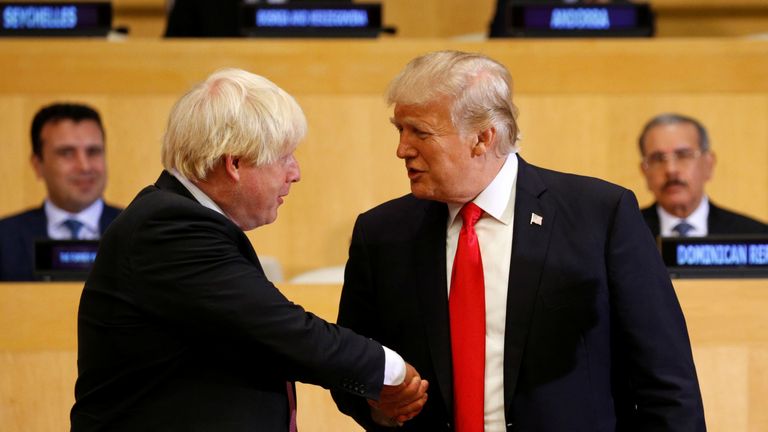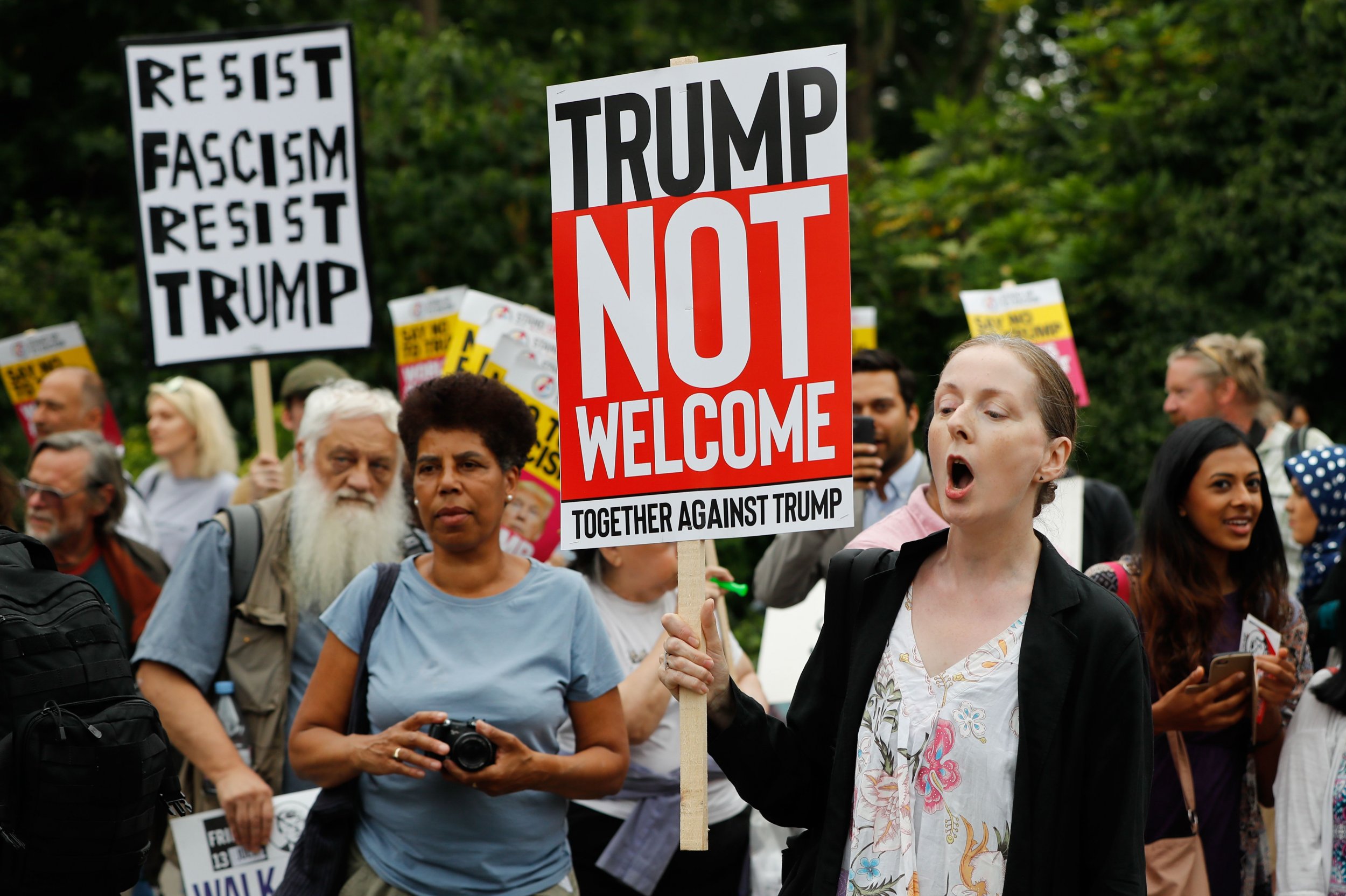 |
| Boris Johnson with Donald Trump (Image: Sky News) |
Donald Trump is taking the United States back to the 1930s. Boris Johnson is just like Donald Trump, who is taking the United States back to the 1930s, so therefore Britain is heading back to that decade too. By electing Jeremy Corbyn as UK's Prime Minister, the country will rewind to the 1970s. Vladimir Putin is bringing Russia back to the Stalin era.
The list of claims that certain divisive politicians and governments are guiding their countries to the past is ever increasing. Commentators and newspaper editors alike are finding it easy to claw back a handful of bad things that happened at a certain era and compare it to the present day, making the public a little uneasy in the process. This is happening regardless of where in the political spectrum these so-called experts see themselves in, smearing their apparent opponents to win political brownie points.
Of course, comparing powerful figures with a decade which many endured, isn't a new thing. Ed Miliband, when he was Labour leader between 2010 and 2015, was given the same treatment as Corbyn, in terms of comparing his politics to that of the 1970s. I wasn't around then, but apart from brilliant music and iconic films, popular culture seemed to be the only element of the decade that people appreciated. People weren't comparing Ed Miliband to David Essex, but comparing his politics to that when inflation skyrocketed, industry was in free-fall and society in despair.
Jeremy Corbyn is falling towards the same trap as Miliband. He shall not be compared to Leo Sayer, but to how he would handle economic matters, as well as anti-Semitism, which continues to be a strain on his leadership. Between the 1960s and 1980s, the population of Jewish people fell quite drastically, while recent reports suggest it could fall even further should Corbyn be Prime Minister - and people aren't going to let that slip. We don't know why the number of people who followed Judaism fell in the decades stated, but people at that time were making arguments about the 'new anti-Semitism' committed by those from 'the left', something that is echoed to this day. Now that Corbyn has launched a fresh 'No Place for Antisemitism' campaign, one sincerely hopes it will turn a corner in terms of the hostile relationship between Labour's current leadership and the Jewish community.
 |
| Jeremy Corbyn in 1970s (Image: The Sun) |
Across the Pond, we have Donald Trump whose politics many compare to the 1930s. This viewpoint has been elevated in recent weeks due to, predictably, his tweets. Who needs a publicist when you have a notorious Twitter account? While his new press secretary settles into her role and deciding not to hold press briefings at the White House (as yet), Trump is keeping busy by attacking a few Democrats. The latest controversy started when he targeted four congresswomen; Alexandria Ocasio-Cortez, Rashida Tlaib, Ayanna Pressley and Ilhan Omar. He suggested they, basically, should go back to their countries of origin to sort out their governments rather than ranting about US's. The problem here is that three of the four were born in the United States with the fourth migrating to the country as a young toddler.
The tweets were morally corrupt and many were absolutely right in calling out the racist tone in them. The shock and awe continued where shortly after, he held a rally where his supporters were seen to chant "send her home", taking particular aim at Omar. Video footage showed how he was silent and didn't urge the thousands of people to stop the hateful echo, but he was relatively quick to tell media he felt 'a little bit badly' about the situation. However, that hasn't stopped Trump's opponents accusing him of fascism.
Certainly Trump's endorsement of Boris Johnson who, as I write this, has one foot into 10 Downing Street, will fuel the special relationship to new levels, perhaps stooping Johnson to Trump's levels. This is one of Johnson's first challenges as Prime Minister - to ensure that he isn't accused of fascism either, any more than he has been already.
 |
| Anti-Donald Trump protesters (Image: Newsweek) |
People won't accept fascism today because the vast majority don't support it. If Trump has such tendencies, and Americans vote him as an overwhelming victor, then I'd offer my concern. He didn't win the popular vote in 2016, he lost ground in the 2018 mid-terms and I predict he won't fair as well in next year's elections as he did three years ago. Same rule applies to Corbyn. People won't accept anti-Semitism today because many offer solidarity towards the Jewish community - so does Corbyn in that actual fact, he just needs to sort his advisors out. These trends didn't happen in the 1930s when fascism and racism was accepted as the norm.
The world has swiftly moved on from 80 years ago. We're probably more divided than ever, yet more tolerant than ever. Socially, I strongly feel that I'd be a lot safer now than I was before and during the Second World War. Let's please, sit back and analyse without jumping to wild conclusions.
Comments
Post a Comment